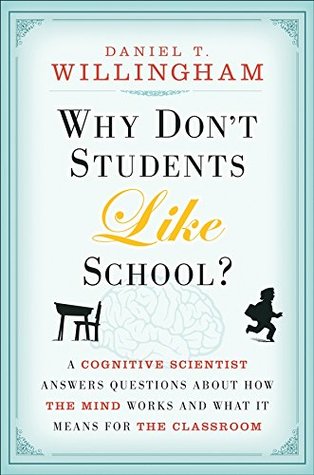Sravanthi Challapalli
For many parents/guardians, it must be/have been a common occurrence to have their wards go to school with some amount of reluctance or the other. Perhaps these children go only because they feel it’s something they should suffer through for their own good. Perhaps they are afraid of the teachers, fear that their homework is not up to scratch and do not take an active role in class lest the teachers find fault with them or their peers resent them.
However, according to Daniel T Willingham, a cognitive scientist and the author of this book, it’s largely because thinking is a complex task. The brain, contrary to popular perception, is designed to save people from thinking. Thinking is a “slow, effortful and uncertain task” even though solving problems with a moderate difficulty level can make people feel successful and enjoy the challenge. It’s the feeling that the mental exertion has paid off. “Working on problems that are of the right level of difficulty is rewarding, but working on problems that are too easy or too difficult is unpleasant. Students can’t opt out of these problems the way adults often can. If the student routinely gets work that is a bit too difficult, it’s little wonder that he doesn’t care much for school.”
How, then, can one make thinking easier for students and what the challenges to that are form the bulk of the book. The author advises teachers to think of lessons and methods of teaching them in a way that will engage them and makes them want to know the answer. Even so, view the answer as a foundation of why students should know something, say, Archimedes’ principle or Pythagoras’ theorem? How will it make a difference to their life?
The book also discusses the role of background knowledge and rote learning, a much criticised
practice, in making the task of thinking easier. “It is certainly true that facts without the skills to use them are of little value. It is equally true that one cannot deploy thinking skills effectively without
factual knowledge.” He discusses methods and techniques to think better. He emphasises that continuous practice is vital to get students to grasp the underlying principles of a subject and apply them to problems or situations so that the process becomes instinctive through training one’s mind.
Willingham says that teachers do not know or understand cognitive principles such as these and therefore do not teach in ways that make the students receptive to lessons. He offers a few tactics to help getting students to remember things. His advice to the teachers is more in terms of what they need to know about knowledge, learning and memory and how it applies to students. Teachers can benefit by reading this book and gain a better understanding of their students and work towards recasting their teaching methods and lesson plans.







